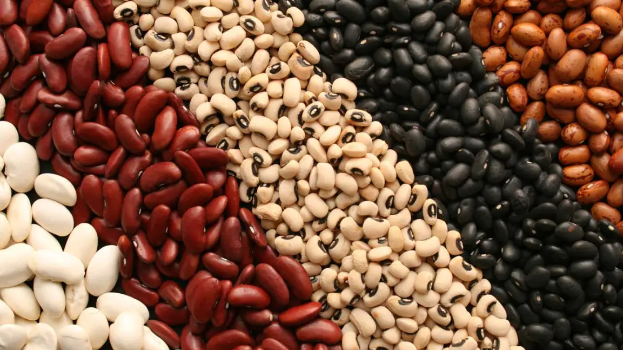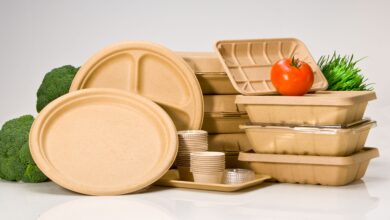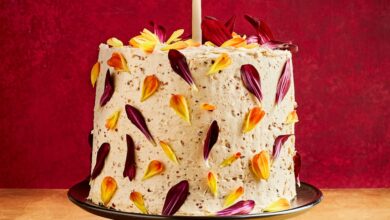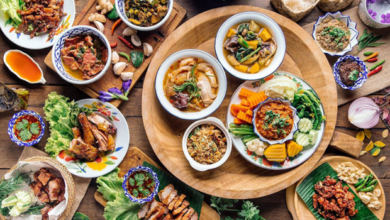bị sưng không nên ăn gì:What to Avoid Eating When You’re Swollen

bị sưng không nên ăn gì When you’re swollen it’s important to be careful about what you eat to avoid making the swelling worse. Some foods can aggravate swelling and make you feel even more uncomfortable. So what should you avoid eating when you’re swollen? First of all it’s best to stay away from salty snacks like chips and pretzels. These foods can cause your body to retain water leading to more swelling. Instead try to opt for healthier snacks like fruits or vegetables.
Additionally you should avoid foods that are high in sugar and processed carbohydrates. These can spike your blood sugar levels and contribute to inflammation which can worsen swelling. So say no to sugary drinks, candies and pastries when you’re swollen. Instead choose whole grains and natural sweeteners like honey or fruit to satisfy your sweet tooth. Remember bị sưng không nên ăn gì so make sure to read food labels carefully and avoid anything with excessive salt sugar or unhealthy fats.
Foods Not to Eat When You’re Swollen
When you’re dealing with swelling there are certain foods you should definitely avoid. One of the top offenders is processed foods such as fast food burgers and frozen meals. These foods are often loaded with sodium which can cause your body to retain water and exacerbate swelling. Instead of reaching for these convenient but unhealthy options try cooking fresh meals at home using whole ingredients.
Another type of food to steer clear of when you’re swollen is anything high in sugar. This includes sugary snacks like cookies, cakes and candies as well as sweetened beverages like soda and fruit juice. High sugar intake can lead to inflammation in the body making swelling worse. Instead satisfy your sweet tooth with natural sources of sweetness like fresh fruit or a small piece of dark chocolate. Remember bị sưng không nên ăn gì so opt for healthier alternatives to processed and sugary foods to help reduce swelling and promote overall well-being.
Why You Shouldn’t Eat Certain Foods When You’re Swollen
It’s important to understand why certain foods should be avoided when you’re swollen. Foods high in salt sugar and unhealthy fats can all contribute to inflammation in the body which can worsen swelling. For example salty foods cause your body to retain water leading to puffiness and bloating. Similarly sugary foods can spike your blood sugar levels and trigger inflammation making swelling more severe. Additionally unhealthy fats found in fried and processed foods can also increase inflammation and contribute to swelling.
When you’re swollen your body needs nutrients that help reduce inflammation and promote healing. That’s why it’s important to focus on eating whole nutrient-rich foods like fruits, vegetables, lean proteins and whole grains. These foods provide essential vitamins, minerals and antioxidants that can help reduce swelling and support overall health. So by avoiding foods that are high in salt sugar and unhealthy fats you can help alleviate swelling and feel better faster.
Things That Make Swelling Worse: Foods to Avoid
There are several factors that can make swelling worse and certain foods play a big role in this. One of the main culprits is processed foods which are often packed with sodium. Sodium causes your body to retain water leading to bloating and swelling. That’s why it’s important to avoid foods like canned soups, processed meats and packaged snacks when you’re swollen. Instead opt for fresh whole foods that are naturally low in sodium.
In addition to processed foods, sugary treats can also exacerbate swelling. Foods high in sugar can cause inflammation in the body which can worsen swelling and prolong recovery time. So it’s best to avoid sugary snacks and desserts like cookies, cakes and candies when you’re swollen. Instead satisfy your sweet tooth with fresh fruits or a small piece of dark chocolate. By making these simple changes to your diet you can help reduce swelling and feel better faster.
Do’s and Don’ts for Swollen People: Food Edition
When you’re dealing with swelling it’s important to follow some do’s and don’ts to help alleviate your symptoms. Let’s start with the don’ts. Don’t eat foods that are high in salt sugar or unhealthy fats. These can all contribute to inflammation in the body and make swelling worse. Instead opt for whole nutrient-rich foods like fruits, vegetables , lean proteins and whole grains.
Another don’t is to avoid processed foods as much as possible. These often contain added preservatives, chemicals and unhealthy fats that can exacerbate swelling and other health issues. Instead choose fresh whole foods that are free from additives and provide your body with essential nutrients. And don’t forget to drink plenty of water to stay hydrated and help flush out toxins that can contribute to swelling.
Now let’s talk about the do’s. Do eat foods that have anti-inflammatory properties such as fatty fish like salmon walnuts and leafy greens like spinach and kale. These foods can help reduce inflammation in the body and alleviate swelling. Also do incorporate foods that are high in antioxidants such as berries into your diet. Antioxidants help protect your cells from damage caused by free radicals and can support overall health and well-being.
Swollen? Stay Away from These Foods
If you’re feeling swollen it’s important to steer clear of certain foods that can make your symptoms worse. One food to avoid is anything high in sodium such as processed meats, canned soups and salty snacks like chips and pretzels. Sodium causes your body to retain water leading to bloating and puffiness. Instead choose low-sodium alternatives or season your food with herbs and spices instead of salt.
Another food to avoid when you’re swollen is anything high in sugar. This includes sugary snacks like cookies, cakes and candies as well as sweetened beverages like soda and fruit juice. High sugar intake can lead to inflammation in the body exacerbating swelling and discomfort. Instead satisfy your sweet tooth with fresh fruits or a small piece of dark chocolate.
Remember bị sưng không nên ăn gì so it’s best to avoid processed and sugary foods when you’re feeling swollen to help reduce inflammation and promote overall well-being.
Foods That Can Make Swelling Go Away
When you’re swollen, choosing the right foods can help alleviate your symptoms and promote healing. One type of food that can help reduce swelling is foods rich in antioxidants. These include fruits like berries which are packed with vitamins and minerals that help fight inflammation. Other antioxidant-rich foods include leafy greens, nuts and seeds. By incorporating these foods into your diet you can help reduce swelling and support your body’s natural healing process.
Another type of food that can make swelling go away is foods high in omega-3 fatty acids. These healthy fats are found in fatty fish like salmon as well as walnuts and flaxseeds. Omega-3 fatty acids have anti-inflammatory properties that can help reduce swelling and improve overall health. Adding these foods to your diet can help alleviate discomfort and promote faster recovery.
It’s also important to stay hydrated when you’re swollen so be sure to drink plenty of water throughout the day. Water helps flush out toxins from the body and can reduce water retention which can contribute to swelling. You can also try incorporating foods with high water content into your diet such as cucumbers, watermelon and celery. These foods can help keep you hydrated and promote healthy circulation which can help reduce swelling.
Be Careful. What You Eat Can Affect Swelling
What you eat can have a big impact on swelling so it’s important to be careful about your food choices. Foods that are high in salt sugar and unhealthy fats can all contribute to inflammation in the body making swelling worse. That’s why it’s important to avoid processed foods, fast food and sugary snacks when you’re swollen.
Instead focus on eating whole nutrient-rich foods like fruits, vegetables, lean proteins and whole grains. These foods provide essential vitamins, minerals and antioxidants that can help reduce inflammation and promote healing. Additionally be mindful of portion sizes and avoid overeating as excess weight can put extra strain on your body and exacerbate swelling.
In addition to choosing the right foods it’s also important to pay attention to how you prepare your meals. Opt for cooking methods like steaming, baking or grilling instead of frying which can add extra unhealthy fats to your food. By making these simple changes to your diet you can help reduce swelling and feel better faster.
The Best Foods to Eat When You’re Swollen
When you’re swollen, choosing the best foods to eat can make a big difference in how you feel. One of the best types of foods to include in your diet when you’re swollen is those that have anti-inflammatory properties. These include fruits like berries which are rich in antioxidants that help fight inflammation. Other anti-inflammatory foods include leafy greens such as spinach and kale as well as fatty fish like salmon which are high in omega-3 fatty acids.
Additionally foods that are high in water content can also be beneficial when you’re swollen. Water-rich foods like cucumbers, watermelon and celery can help hydrate your body and reduce water retention which can contribute to swelling. Including these foods in your diet can help alleviate swelling and promote overall health and well-being.
Another important consideration when you’re swollen is to choose foods that are easy to digest. Opt for foods that are gentle on your stomach such as soups, smoothies and steamed vegetables. These foods are easier for your body to break down and absorb which can help reduce discomfort and promote healing. Remember bị sưng không nên ăn gì so focus on nourishing your body with nutrient-rich foods that support your recovery.
Tips for Eating Right When You’re Swollen
Eating right when you’re swollen can help alleviate discomfort and promote faster healing. One tip is to eat smaller, more frequent meals throughout the day instead of large heavy meals. This can help prevent bloating and discomfort as well as provide a steady supply of nutrients to support your body’s recovery.
Another tip is to chew your food slowly and thoroughly to aid digestion. Chewing your food well can help prevent indigestion and bloating which can worsen swelling. Additionally, be mindful of how you season your food. Avoid using excessive salt as it can contribute to water retention and swelling. Instead flavor your meals with herbs, spices and other seasonings that are low in sodium.
It’s also important to listen to your body and eat intuitively. Pay attention to how certain foods make you feel and adjust your diet accordingly. If you notice that certain foods exacerbate your swelling or discomfort try eliminating them from your diet temporarily and see if your symptoms improve. By making these simple changes to your eating habits you can help reduce swelling and feel better faster.
Swollen? Here’s What You Shouldn’t Eat
When you’re dealing with swelling there are certain foods that you should definitely avoid. One of the main culprits is anything high in sodium such as processed meats, canned soups and salty snacks like chips and pretzels. Sodium causes your body to retain water leading to bloating and puffiness. Instead choose low-sodium alternatives or season your food with herbs and spices instead of salt.
Another food to avoid when you’re swollen is anything high in sugar. This includes sugary snacks like cookies, cakes and candies as well as sweetened beverages like soda and fruit juice. High sugar intake can lead to inflammation in the body exacerbating swelling and discomfort. Instead satisfy your sweet tooth with fresh fruits or a small piece of dark chocolate.
Remember bị sưng không nên ăn gì so it’s best to avoid processed and sugary foods when you’re feeling swollen to help reduce inflammation and promote overall well-being.
Conclusion
When you’re swollen, paying attention to your diet is crucial for reducing discomfort and promoting healing. Avoiding foods high in sodium sugar and unhealthy fats can help alleviate swelling and support your body’s natural recovery process. Instead focus on eating whole nutrient-rich foods like fruits, vegetables, lean proteins and whole grains.
Incorporating anti-inflammatory foods like berries, leafy greens and fatty fish can help reduce inflammation and alleviate swelling. Additionally staying hydrated and choosing foods that are easy to digest can further support your recovery.




